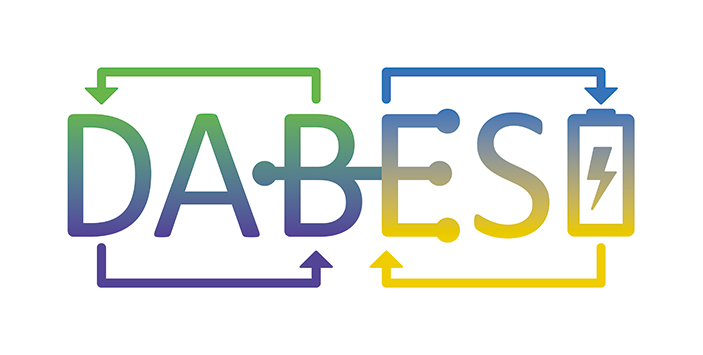| Duration: | 12/2020 - 11/2023 |
| Contracting Authority/ Sponsors: |
Bundesministerium für Wirtschaft und Energie (BMWi) |
| Project Partners: | Ernst Knoll Feinmechanik GmbH, Umkirch; Bundesverband Energiespeicher e.V., Berlin; Solandeo GmbH, Berlin; EDF Distributed Solutions GmbH, Berlin |
| Website: | DABESI |
| Project Focus: |
DABESI
Data-driven design and operational management of decentralized electrical storage systems in manufacturing SMEs
Electrical storage systems are a central building block not only for a decentralized energy supply, but also for the energy transition. Yet especially in medium-sized industrial companies, which constitute the central pillar of the German economy, these systems have so far rarely been installed. The "DABESI" project (Data-driven Design and Operational Management of Decentralized Electric Storage Systems in Manufacturing SMEs) aims to optimize electricity consumption in SMEs from an operational point of view through the use of storage systems.
A cost-effective power supply and efficient use of resources are essential for these companies to compete sustainably in international competition. However, one challenge in identifying and realizing optimization potential in this area is the high complexity and individuality of the production processes, which often require extensive analysis.
DABESI aims to optimize the use of storage systems from an economic point of view, taking into account company-specific load profiles and general conditions. To this end, the five project partners under the consortium leadership of Erst Knoll from Feinmechanik GmbH are pursuing five intermediate goals that build on each other:
- Analyzing high-resolution load data from industrial operations to identify storage system potential and systematic inefficiencies
- The development of a generic model for the optimal sizing of storage systems depending on business cases and company-specific conditions and load profiles
- The design of operation strategies in combination with the development of versatile and possibly predictive control algorithms based on machine learning approaches
- The development of a system architecture that allows free scaling and technological combination of hybrid storages
- The sizing, installation and testing of storage systems in selected industrial plants.
After collecting the measurement data necessary for a business assessment of the use cases, algorithms will be developed - with the help of machine learning approaches - for the automatic selection and dimensioning as well as for the operational management of storage systems. In parallel, the prototype of a flexibly deployable, modular hybrid energy storage system will be developed to combine the respective advantages of lithium and redox flow storage technologies
The prototype and control algorithms developed during the project will finally be tested extensively in the DigitalGridLab at Fraunhofer ISE and in a field test.
